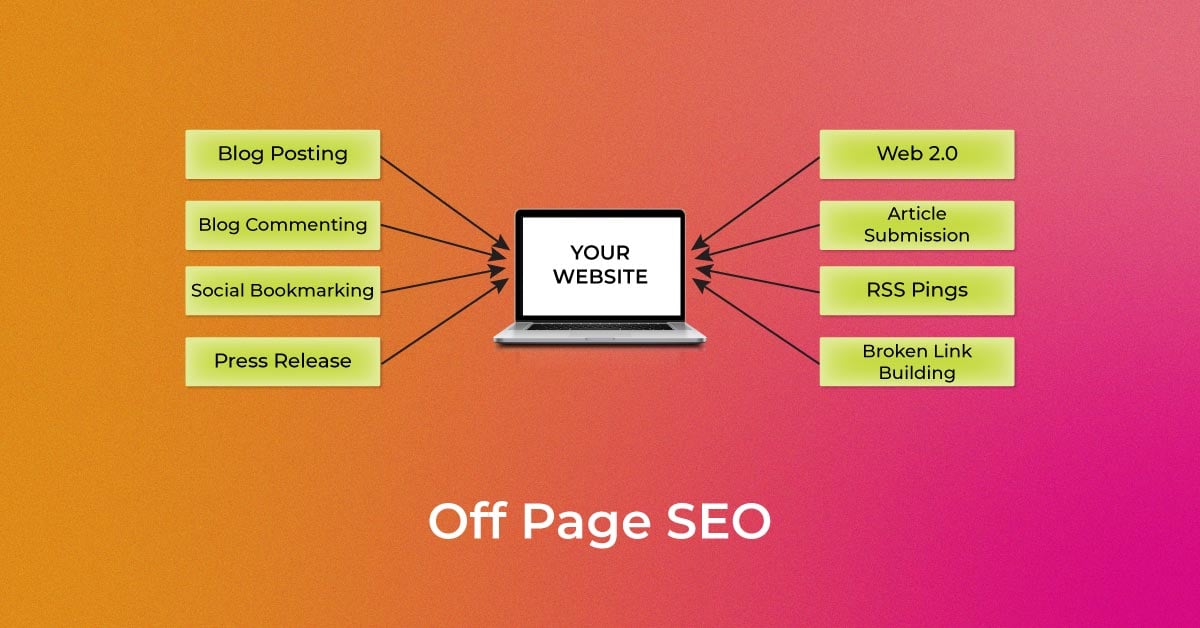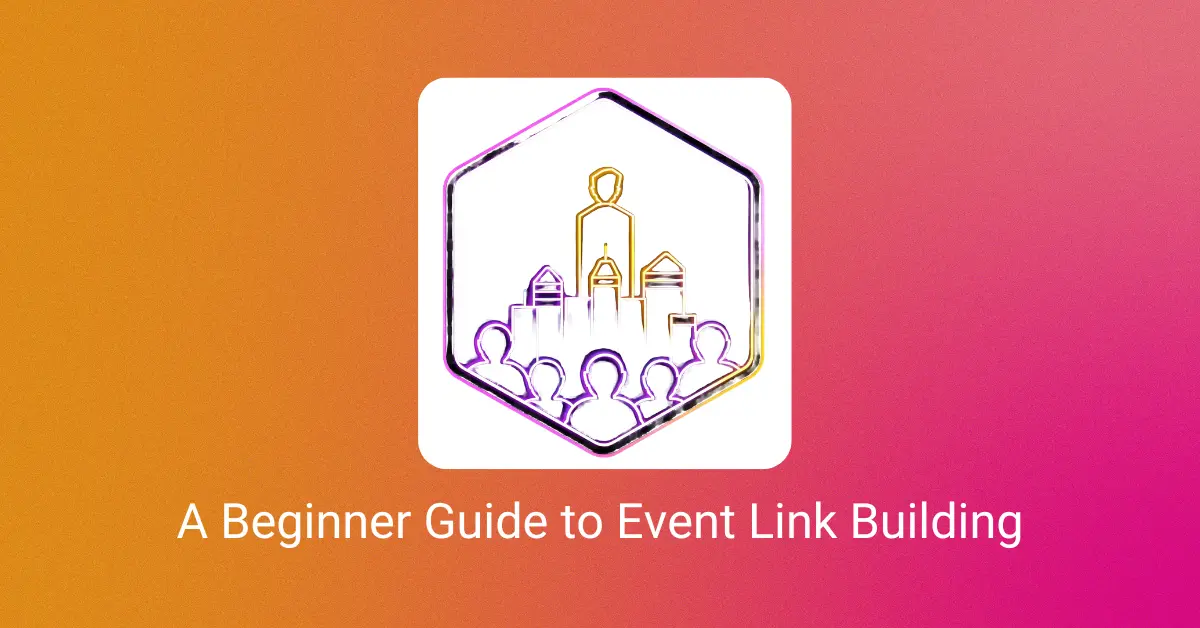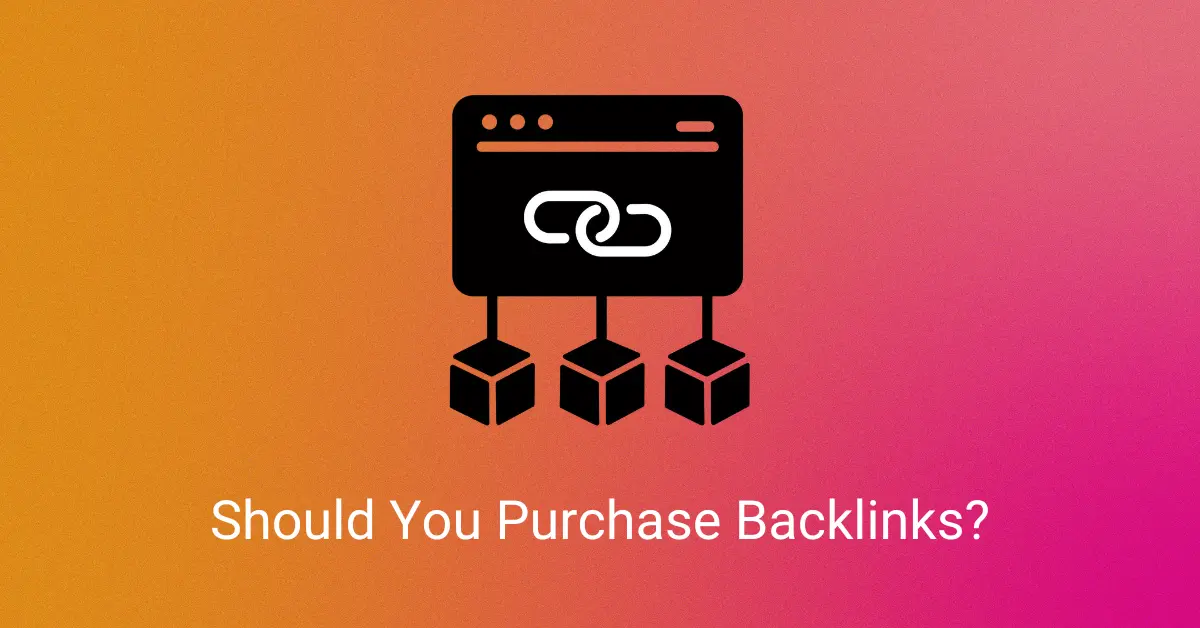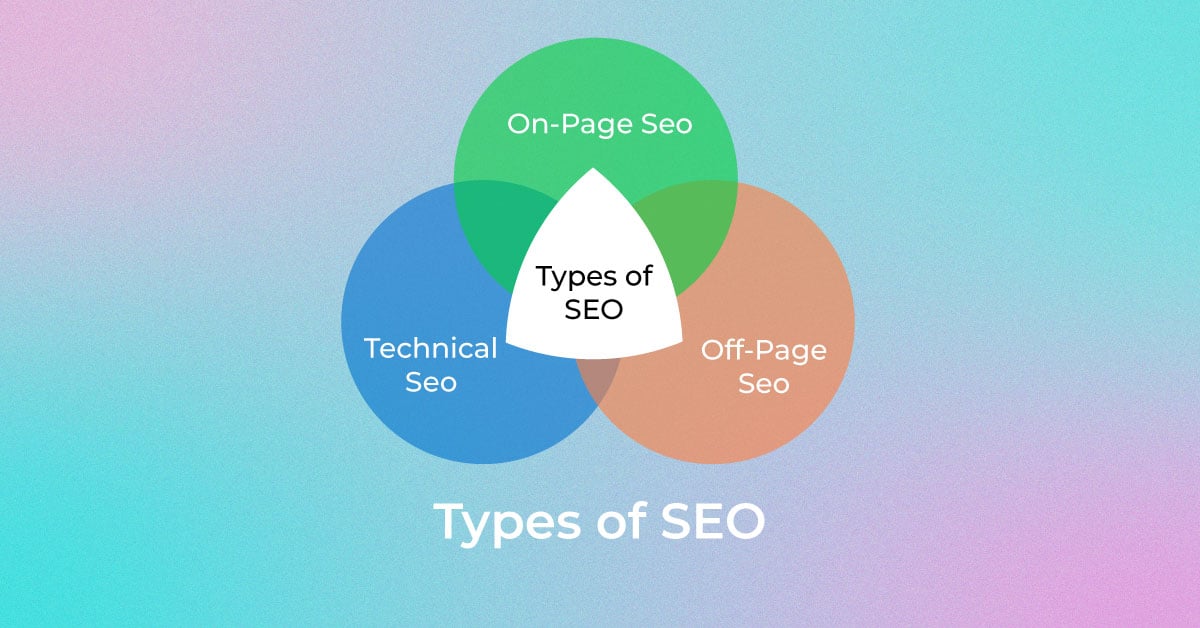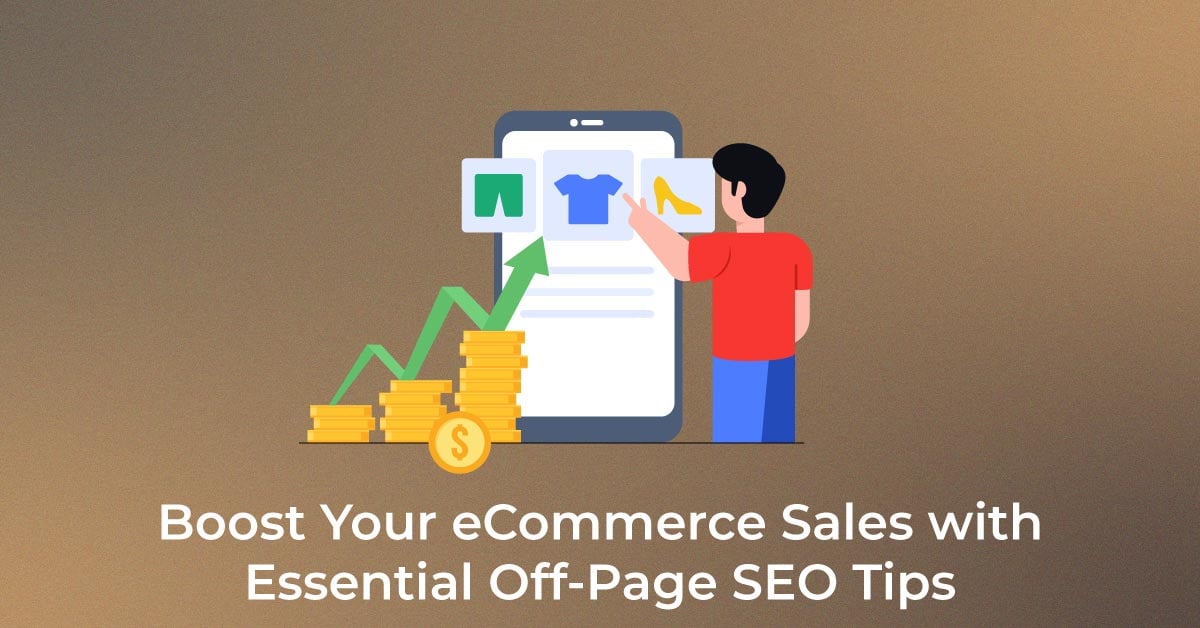As the owner of a website, you need to keep track of several factors to maintain or improve your rankings on search engine result pages (SERPs). A few are under your control, while others require special attention. This includes off-page search engine optimization (SEO).
This article will walk you through an off-page optimization checklist to follow for the best results.
What is Off Page SEO?
Off-page SEO refers to all optimization efforts that happen outside your website to improve its rankings in search engine results. While on-page SEO focuses on content and technical elements within your site, off-page SEO is about building your website’s authority, credibility, and relevance through external signals. This includes acquiring backlinks from reputable websites, gaining brand mentions, increasing social media engagement, and strengthening your presence on local platforms like Google Business Profile.
These factors help search engines evaluate the trustworthiness and popularity of your site, making off-page SEO a vital part of any effective SEO strategy. This article covers a practical off-page SEO checklist to help improve your site’s rankings.
Why is Off-Page SEO Important?
Off-page SEO remains a key factor in how search engines evaluate a website’s authority and trustworthiness. With Google’s algorithms becoming more advanced, factors like backlink quality, brand mentions, and user trust signals are playing a bigger role in search rankings.
High-authority backlinks signal to Google that your content is credible, while strong off-page signals like social engagement and local SEO help improve your site’s visibility across different platforms. As competition grows and AI-driven search continues to evolve, a well-structured off-page SEO strategy is essential for building long-term rankings and organic traffic.
Off Page SEO Checklist: 10 Actionable Items
1) Analyze Your Backlink Profile
Older websites often collect both good and bad backlinks. Links from spammy sites can harm your SEO or lead to penalties. Regularly audit your backlink profile using tools like Google Search Console. Review anchor texts and link sources to identify which links help and which should be removed or disavowed.
2) Evaluate Competitor Backlinks
What is the most crucial step in developing an off-page SEO strategy? It all starts with analyzing your competitors’ profiles. What if you don’t have information about what your competitors are doing? Begin by analyzing your competitors’ link profiles. Identify the sources of their links. Examine how these links assist them in gaining clicks. Determine how many of these are from sites in the same industry, how many are from sites with higher domain scores, and how many are from spam sites.
You can accomplish this by using one of the numerous tools available on the market. Simply paste any URL in the tool and run it to get the report. The generated report will show you the authority and quality of the link.
3) Perform Link Intersect Analysis
Link intersect analysis helps you find websites that link to your competitors but not to you, revealing potential backlink opportunities. By comparing multiple domains, you can identify common link sources and assess their quality. Use tools like Ahrefs or Semrush to quickly run this analysis and uncover valuable prospects without manual effort.
4) Build a Scalable Link-Building Strategy
A strong link-building strategy is key to improving your site’s domain authority and visibility in search results. Focus on creating valuable, data-backed content that naturally attracts backlinks. Encourage brand mentions and reviews by engaging with industry influencers. You can also use tools like Ahrefs or Semrush to identify high-authority sites worth targeting. A scalable approach ensures long-term link growth without relying on shortcuts or spammy tactics.
5) Acquire Links from Competitor Sources
If your competitor is at the top of SERPs, it indicates that they have a strong backlink profile. You can’t beat them with just keyword placement; you need other strategies too. This is where link stealing can help. You can steal the link from a competitor at either the page or domain level or both. Here is how you can steal links:
- Searching the home pages of competitors’ websites might reveal numerous links that could benefit your site.
- Creating guest posts for websites your competitors are writing for and understanding the kind of responses they are getting in terms of traffic would help too.
- Looking for sites that link to multiple industry-specific sites and contacting them for replicable link opportunities.
6) Conduct Blogger Outreach
Blogger outreach involves connecting with industry influencers or content creators to promote your brand, content, or products. It’s an effective way to earn quality backlinks, build brand awareness, and boost content reach, especially for startups.
Before reaching out, define your goals (e.g., link building, PR, or traffic). Evaluate the blogger’s audience engagement, site authority, and spam score. Tools like Moz and Semrush can help you assess whether a collaboration is worth pursuing.
7) Optimize Your Google Business Profile
A well-optimized Google Business Profile helps boost local visibility and attract qualified traffic. It also improves your chances of appearing in local search results. Follow these key steps:
- Create or claim your Google Business Profile with complete and accurate details
- Ensure consistency between your online and offline business NAP (name, address, phone number).
- Choose the most relevant business category and add attributes (e.g., home delivery, wheelchair access)
- Upload high-quality images and videos that reflect your business
- Encourage customer reviews and respond to them regularly
A properly managed profile builds trust and supports stronger local SEO performance.
8) Use Paid Promotions
Paid promotions help you gain quick visibility, especially if you’re just starting out or in a competitive niche. Platforms like Google Ads can drive quality leads while your SEO strategy builds over time. It’s a smart way to support long-term growth with short-term results.
9) Publish Guest Posts on Authoritative Sites
Guest posting on reputable websites in your niche is a powerful way to boost traffic, build brand credibility, and earn quality backlinks. It positions your brand as an industry expert and supports domain authority growth. Focus on adding genuine value and avoid overly promotional or irrelevant content, as it can harm your brand’s reputation.
10) Turn Unlinked Mentions into Backlinks
Unlinked mentions means when your brand is referenced on another website without a hyperlink. While they don’t directly pass link equity, search engines increasingly recognize them as brand signals that contribute to authority and relevance.
You can turn unlinked mentions into backlinks by reaching out and requesting a link addition especially if the mention is positive and relevant. However, avoid pursuing links from:
- Sites with negative sentiment about your brand
- Publishers that demand payment for links (against Google’s guidelines)
- Sources known for using black-hat SEO tactics
Focus on authentic, earned mentions to support long-term SEO success.
Common Off Page SEO Mistakes to Avoid
A strong off-page SEO strategy can significantly improve your site’s rankings, but even small mistakes can hold you back. Nowadays, search engines are smarter and more selective about the signals they trust. Avoiding common off-page SEO errors is just as important as following best practices. Here are a few mistakes you should avoid:
1. Focusing on Quantity Over Quality
Acquiring a large number of backlinks from low-quality or irrelevant websites can harm your rankings rather than improve them. Google values backlinks from authoritative and relevant sources. Focus on earning contextual, high-quality links that align with your niche.
2. Ignoring Brand Mentions
Many marketers overlook unlinked brand mentions, but they still act as trust signals to search engines. Monitoring and converting these mentions into backlinks helps strengthen your site’s authority. Tools like Google Alerts can help you track these opportunities effectively.
3. Using Repetitive Anchor Text
Using the same exact-match anchor text across multiple backlinks looks unnatural to Google and may trigger a penalty. Instead, diversify your anchor text with a mix of branded, generic, and long-tail phrases to maintain a natural backlink profile.
4. Neglecting Local SEO Opportunities
Ignoring local SEO and not optimizing your Google Business Profile, missing local citations, or avoiding location-based content can limit your visibility in geo-targeted searches. Local backlinks and listings help drive traffic and boost relevance for location-based queries.
5. Not Tracking Link Performance
Building backlinks without evaluating their impact can lead to wasted effort. Regularly review how your links contribute to rankings and traffic to ensure your off-page strategy stays effective.
Final Thoughts on Your Off-Page SEO Checklist
Building a strong off-page SEO foundation requires more than just link-building. It’s about earning trust, improving authority, and driving relevance from sources beyond your website. By following this checklist and avoiding common mistakes, you can strengthen your site’s visibility, stay competitive in search results, and support long-term SEO growth. Consistency, quality, and strategy are key to making off-page SEO a core part of your digital marketing plan.
Frequently Asked Questions (FAQs)
Q.1) What are some items to include on off-page SEO checklists?
A basic off-page SEO checklist includes multiple things that impact rankings. Here are a few of them:
- Analyzing your competitors’ link profile
- Performing link intersect analysis to find link-building opportunities
- Putting effort into converting unlinked mentions into quality links
- Creating well-researched guest posts
Q.2) How do you do off-page SEO?
You can begin off-page SEO by first defining your goals. After that, examine your competitors’ backlink profiles and make a list of the sources for their links. Contact those sites for links and guest posting opportunities. In addition, use social media or affiliate and influencer marketing as part of your link-building strategy.
Q.3) How important is off-page SEO?
Off-page SEO assists you in gaining market recognition. The primary goal of off-page SEO is to obtain links. Implementing this strategy correctly gives users the impression that your site contains valuable information and has things that can address customers’ pain points. Approaches such as guest posting project you as an industry expert.
Q.4) What is the difference between on-page SEO and off-page SEO?
On-page SEO concentrates on factors that are directly related to your website. It consists of detecting and fixing duplicate content, optimizing title tags, adding alt tags to images, and so on. On the other hand, off-page SEO is more about a link-building strategy. It includes guest posting, link intersection analysis, affiliate and influencer marketing, and so on.
Popular Searches
How useful was this post?
0 / 5. 0











